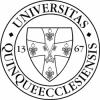With ambitions to become a surgeon, he eventually became a neuroendocrinologist, Dr István Merchenthaler, whose career took him from the Medical University of Pécs to the United States of America. His alma mater made an interview with the professor about his time at the University of Pécs and his eventful career, as well as his research that could revolutionise the treatment of menopausal symptoms.
Written by Viktor Harta
You attended the Medical University of Pécs between 1968 and 1974. How do you remember the POTE times of about half a century ago?
They were amazing years, I loved being a medical student in Pécs. I attended almost every lecture, no matter when it started. Every moment you learned something new, the world opened up to you more and more. I had teachers of great influence and stature, who were a pleasure to listen to and encouraged you. They gave me a love of teaching as well as professional knowledge: in addition to research, I myself teach anatomy, histology and developmental biology to medical students, and I also teach a course on the ‘Biology of Aging’.
Are there any teachers you particularly remember with fond memories?
If I think of someone as the “number one” teacher during my years at the Medical University of Pécs, it is Professor György Romhányi. His personality, his lectures were amazingly good and exciting, we had first-rate classes with him. I would also like to mention, among many others, Professors Béla Flerkó, anatomist, and Szilárd Donhoffer, pathologist, who gave extremely good lectures. I attended their classes without exception.

You had ambitions to become a surgeon, but then you specialised in neuroendocrinology.
Yes, I originally wanted to be a surgeon. But as a medical student, I was attracted to the Institute of Anatomy at POTE, where an excellent neuroendocrinology group operated. After the sophomore year, we had a year of quasi-technical work ahead of us, after which we could get into someone’s group to delve more seriously into science. I remember Professor Béla Flerkó choosing me along with another candidate to support the work of Professor István Rozsos. After learning the necessary microsurgical procedures, we operated on animals for almost two years in connection with Professor Rozsos’ research.
This work brought me together with neuroendocrinologists, and I kept telling myself that I would switch to a surgical career. I was transferred to another group led by Professor György Sétáló, who had just returned from Denver at the time. He dealt with immunocytochemistry in the USA, which was a very mystical and new thing at the time. I also delved into it, and together we focused on researching the neurons that play a role in regulating the pituitary gland. This is where my neuroendocrinological career began.
Soon your career continued seven thousand kilometres away, in the United States of America. How did the change come about?
In my life, the combination of the right time and the right place has been very decisive. I was invited to the Department of Cell Biology and Anatomy at the University of North Carolina at Chapel Hill, where I arrived in 1981. It was during this period that the corticotropin-releasing hormone and the so-called growth hormone-releasing hormone (GHRH) were discovered, and the developments had an impact on my work.
After the one year passed (the practice at the time was to spend that much time abroad), I asked for an extension and was given a second year. This allowed me to bring my family out. The second-year went well, thanks in part to the discoveries mentioned above. In the meantime, I was invited to Tulane University in New Orleans, so I got the third year. We came home in the summer of 1984. I spent the period 1984-88 at the Institute of Anatomy at POTE, but I was allowed to go to the USA every summer for two or three months when I had no teaching duties.
To read the full interview, click here!

University of Pécs
Vasvári Pál u. 4. Pécs,Hungary 7622